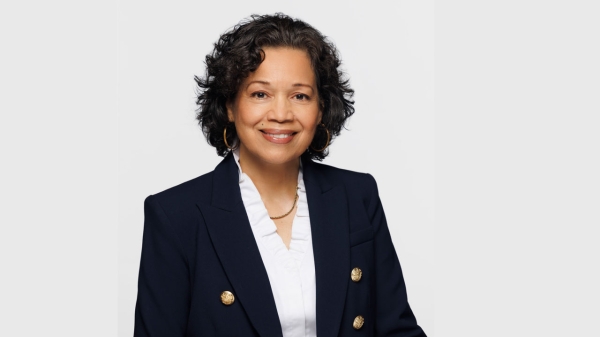ASU professor explains ethical journalism and its evolution since the days of Walter Cronkite

Photo courtesy of pixabay.com
The discussion of racial justice, the COVID-19 pandemic and the presidential election this year have challenged news outlets and stations to remain ethical in their reporting. In efforts to build trusted relationships with its consumers, news outlets and journalists have attempted to engage in nonpartisan reporting.
While this is a goal for some, other outlets and journalists have demonstrated partisan news sharing, therefore showing a conflict of interest in terms of ethical reporting. Rick Rodriguez, a professor of practice in Arizona State University's Walter Cronkite School of Journalism and Mass Communication, focuses on in-depth reporting on Latino and borderland issues. With the events of 2020, understanding how to report on diverse backgrounds remains a key discussion.
We spoke to Rodriguez to get his response on how ethical journalism has changed and why it remains a core value of news.
Question: What does ethical journalism look like?
Answer: Ethical journalism looks like a news organization has tried to be fair, accurate and thorough in its pursuit of the truth. Often, people speak about being objective, but I believe the standard is trying to be fair to the best of your abilities with the information that is available and that has been verified and presented in the proper context. I don't think anyone is completely objective; we are all products of our life's experiences and may choose to emphasize different things. But I believe that people can reach a standard of fairness when weighing facts and gathering information. Ethical journalism is often guided by a code of ethics that stresses principles in truth-seeking such as independence, avoiding conflicts of interest, transparency and minimizing harm when appropriate.
Q: Why do people view different news outlets in a certain way?
A: We are in an era in which news outlets, particularly television cable stations, have become increasingly partisan, driven in part by the desires of their audiences. Until recently, Fox News was the channel of choice for President Trump and many of his followers. Since the election, there appears to have been a split of sorts and Trump is pointing to Newsmax and OAN as his alternatives of choice. On the opposite side, you have MSNBC and CNN, for example, seen as opposing Trump because of their critical coverage and commentary. This is all part of a media ecosystem that has evolved with the internet in which people tend to look to newscasts, websites and stories that reinforce their own views. On television, that is the way the outlets are building their audiences.
Q: What makes a news station partisan?
A: Extreme partisanship involves not fairly considering facts. If a news station has preconceived political goals that don't involve seeking truth in a fair and independent way, they are not doing ethical journalism. What has happened is that 24-hour news cycles are combinations of news and commentary. The two often blend together, making it hard for viewers to separate what is fact-based, ethical journalism and opinion.
Q: How has ethics in news coverage changed since the Walter Cronkite days to now?
A: There will never be another Walter Cronkite, dubbed "the most trusted man in America." He could sign off with, "and that's the way it is," because there were so few gatekeepers — people who decided what, when and how news was to be disseminated — and he was the best of them. Today, anybody with a cellphone or a laptop can disseminate their versions of the news. Far more news and information are disseminated through social media than any news outlet. News organizations still play a key role in democracy, but they are not the only voices out there competing for the trust, hearts and minds of their readers and viewers. That is why newsrooms must abide by ethical rules to earn credibility and set themselves apart in a changing, crowded and complex media landscape.
Q: What should journalists keep in mind when reporting on a story? Photographers when covering a story?
A: Lots of things. When I tell people that I teach journalism ethics, I'll often get a snicker and a comment like, "Isn't that an oxymoron?" But journalists from credible news organizations think more about ethical conduct than most professions that I know of. Key principles like verifying information before publishing; avoiding conflicts; being fair, thorough and accurate in the pursuit of truth; deciding whether to grant source anonymity and whether it meets the standard that the information the source is going to provide is vital to the public; I could go on. I so admire photographers because they have to make split-second ethical decisions like whether the photographs invade privacy; how to minimize harm on people not used to being thrust into the public eye; how to take photographs without influencing a news event; again, there is a lot more.
But the bottom line is that journalists from bonafide news organizations think about ethics every day. It is ingrained in them from J-school on. That's not to say some don't break the ethical codes — some do, and it not only wrecks their careers but damages the media's credibility. But far, far more adhere to widely accepted ethical codes in the pursuit of informing the public. That's what makes them journalists — vital to democracy — and not propagandists.
More Law, journalism and politics

CBS News president to give keynote address at Cronkite School’s spring convocation
Ingrid Ciprián-Matthews, president of CBS News, will serve as the keynote speaker at Arizona State University’s Walter Cronkite…

School of Politics and Global Studies director's new book explores mass violence
Why do people commit atrocities and why are certain groups, including religious and ethnic, more vulnerable to large-scale…

ASU faculty contributing to improvement of Wikipedia
Many academics have a love-hate relationship with Wikipedia. While the website has information about almost anything you can…